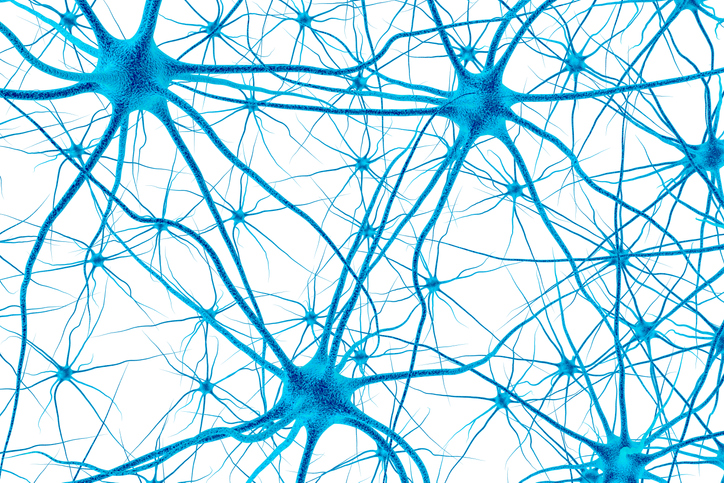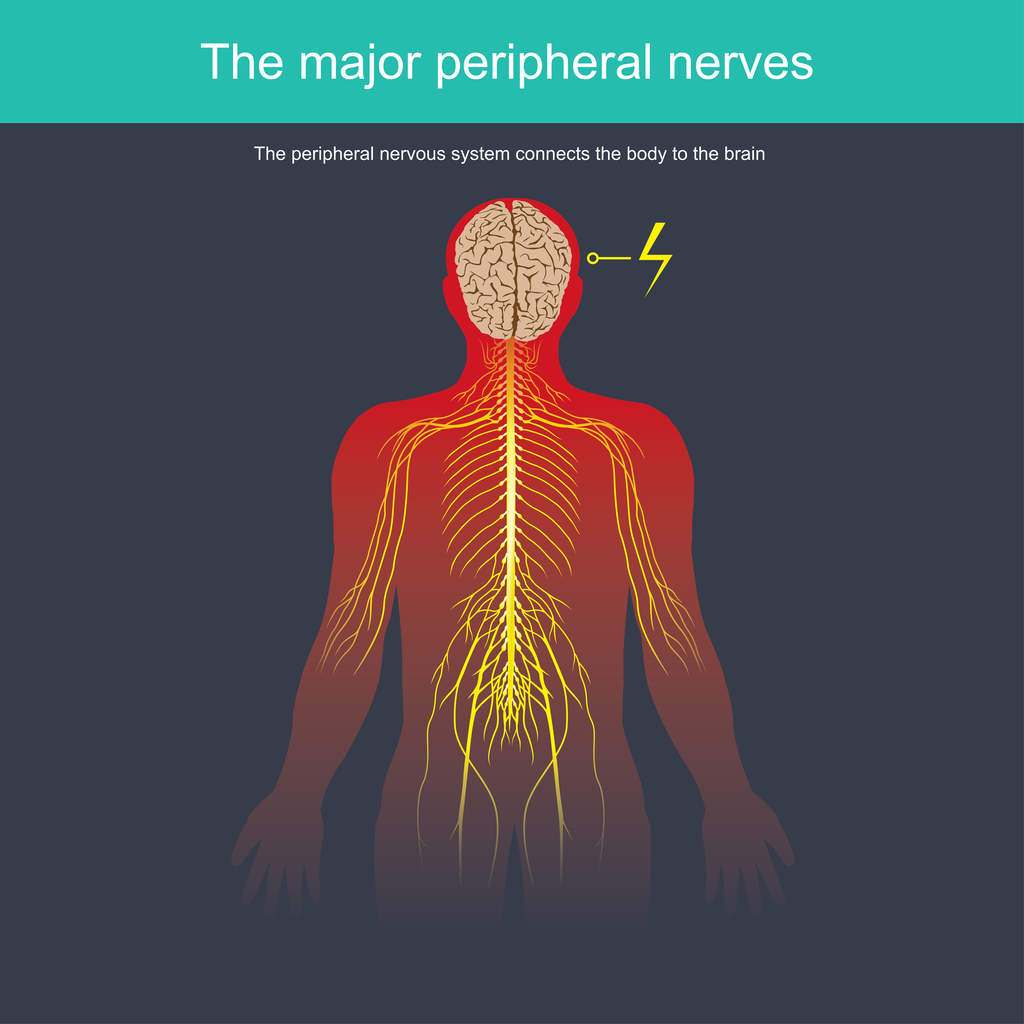Pain
What Is Neuropathy?

54 people found this helpful
Print
Share
Save
Neuropathy involves damage or dysfunction of one or more nerves in the body. The condition can affect any nerve. There are four types of neuropathy:
- Peripheral neuropathy affects the nerves outside the brain and spinal cord, such as those in the feet, hands, legs or arms.
- Cranial neuropathy affects the cranial nerves that emerge directly from the brain.
- Autonomic neuropathy affects nerves of the involuntary nervous system, such as those that control the digestive tract, heart, and other organs.
- Focal neuropathy affects one nerve, one group of nerves, or one area of the body.
What are the symptoms of neuropathy?
Symptoms of neuropathy vary greatly depending on the type and cause. The most common neuropathy symptoms include the following:
- Numbness, tingling or paresthesia
- Muscle weakness
- Pain
- Extreme sensitivity to touch (allodynia)
- Low blood pressure or abnormal heart rate
- Urinary incontinence
- Nausea, vomiting, constipation or diarrhea
What causes neuropathy?
There are several different causes of neuropathy. Some of the most common causes include the following:
- Diabetes
- Fractures or other injuries
- Vitamin B deficiencies
- Autoimmune disorders, such as lupus and rheumatoid arthritis
- Medications, such as chemotherapy drugs or antibiotics
- Infections, such as chicken pox, shingles, HIV/AIDS, or Lyme disease
Idiopathic neuropathy is neuropathy with no known cause.
Who is at risk of developing neuropathy?
Factors that increase the risk of developing neuropathy include the following:
- Age (65 years or older)
- Diabetes
- High blood pressure or high cholesterol
- Obesity
- Excessive alcohol use
















